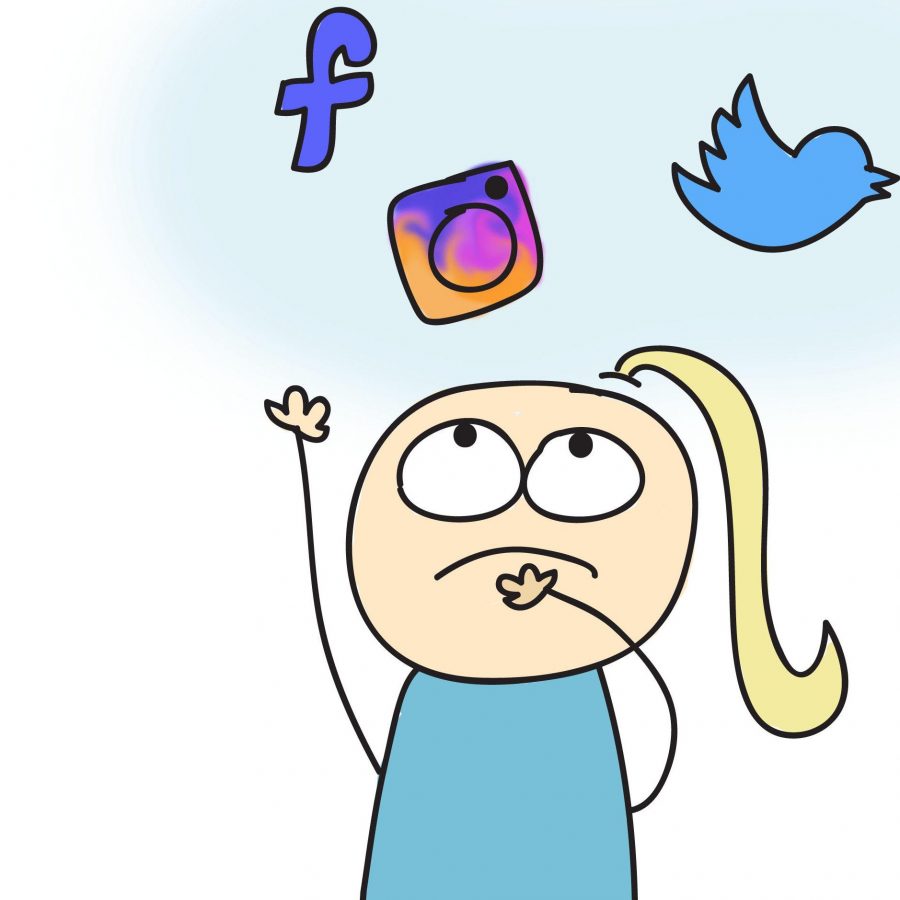I’ve always been rather antiquated when it comes to social media, not completely enthusiastic about broadcasting the details of my life to the world. I try to make my use of social media rather effortless; not expending all my brain power trying to think of that flawless caption to get more likes on a photo. I have a Snapchat. That’s it. I think it’s fine if my friends want to spend time on their social media accounts as they desire to keep the globe updated on regular basis on their recent events in life, whether they went skiing in Tahoe or saw Beyonce live.
In return for a post, receiving hundreds of likes on a photo might create slight moments of happiness, but I have also observed the un-called-for stress and emotional toll this can take on someone. When I heard my friends’ reactions and worries when they encountered platforms like Instagram or Facebook, I began to wonder about the unsaid rules of social media etiquette. They would obsess and say things like, “Oh, my friends are probably annoyed because I posted four photos on my feed today.” When I heard this, I found it rather bemusing. Why would people be so annoyed? Mainly, why are my peers forwarding themselves with social media? As I began to dig into the reasons for the attraction of social media, I came up with some ideas. When we use social media as our main form of communication, this can slowly diminish our face-to-face interactions which can decrease our sensitivity to others, like facing a breakup via text.
For example, take the cliched break-up over text which occurs amongst 30 percent of teens according to Pew Research. This distasteful action is rather common.Why didn’t they have the decency to talk to them in person?
The answer: They don’t want to deal with the other person’s tangible reaction in their presence. If a person breaks-up through text, they avoid human contact and probably receive a response rupturing with anger or a courteous answer. As I sought a thorough explanation of why communication through electronics is so appealing, I got down to the neuroscience. MRI scans have shown more emotional human stimulation when they see another person’s face versus an electronic platform with words in a bubble. Let’s face it, most of the time the person being broken-up with is going to feel pretty hurt with an exasperated thought.
When we lack the face to face interactions as we communicate with one another, we expose ourselves to an abyssal of emotions and worries that are created by social media. Take for example the effortless gesture to “like” someone’s photo. It seems like the iconic heart or thumbs-up button hold more power than one might think. I’ve heard plenty of people state they feel offended when their friends don’t “like” their photos. Someone as incognizant as me thought, “What’s the big deal? Like a photo if you find it appealing.” This button clearly holds more power than just expressing someone “likes” a photo.
I can understand why someone would “like” a friend’s photo out of support whether the person actually finds it appealing or not, but what is the real meaning of the “like” button? It almost seems to represent a friendship status between people if they are friends, and on good-terms. When a friend doesn’t “like” a photo, the frequent ponderance I hear is, “She didn’t like my photo, I wonder why? Are we not friends?” Also not “liking” someone’s photo could potentially represent two people are no longer friends. For example, when couple is no longer together, it’s common for one person (or both) to unfollow each other on social media to make the distressing statement they are no longer together. Another way social media impacts our perception in our daily interactions is the “false” persona we create to broadcast to others. Whether it’s viewing someone’s continuous Snap-story of a concert or artsy photos from a vacation, what does this say about our society? The apparent reason for the appeal to use social media is simply to share pictures and make others aware of what we are doing in that given moment. But wait…..there’s more. Why do we feel compelled to constantly share what we are doing? There are endless excuses to upload a photo, whether it’s directed at one person or many, but what’s the real reason? The photos a person posts might be all true, but it’s only natural to create a glamorized idea of someone’s life based off their best moments they publish for the world to see.
On the other hand, social media has its benefits. For the people who are less bothered by others’ opinions or comments, it can be a pleasant experience to share photos and maintain an account. Even though it has its benefits, social media has a major influence on interactions and perceptions of others. It’s created the 21st century way of communication which has added a layer of stress to maintain their “virtual” image to others.
Knowing myself, I would be too focused on the likes, the followers, posting aesthetic photos, and would analyze people’s comments as a way to measure my reputation. With the lack of face to face interactions and unconsciously perceiving false reality of others lives by the photos they post, I feel would fall into this social media trap. Right now I live a life without social stress and rarely feel judged. Would anyone care to join me?



69420 ♦ Jan 31, 2017 at 12:54 pm
Didn’t you just make an Instagram.